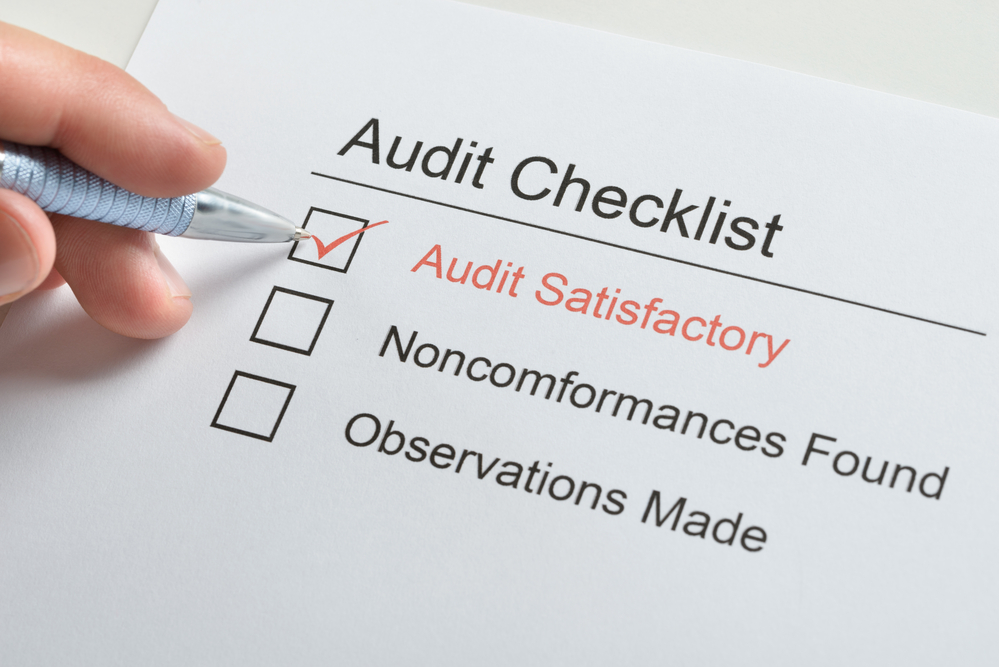DCAA audits are standard procedure for anyone who contracts with the federal or local governments. Unlike tax audits and some other types of audits, a DCAA audit is not triggered when an error is detected or when the contractor is suspected of wrongdoing; rather, these occur on a regular basis to ensure procedural compliance within your business. If you’re new to government contracting, however, a DCAA audit is still quite intimidating, and you might be wondering what to expect. Keep reading to learn more about what the DCAA auditors are looking for during these regular checkups on your business.
What Will They Be Focusing On?
Before we get into the details of what is on that audit checklist, it’s important for you to understand what the main focus of a DCAA audit is. As stated above, they’ll be looking for procedural compliance, which includes submitting accurate documentation regarding your costs. Their primary focus in this area will usually be in regards to your accounting and time-keeping procedures.
Depending on the structure of your business, there are various types of audits that you may face, so it’s important to know exactly the type of audit they’ll be performing. Some of the common types of DCAA audits include:
- Pre-contract award
- Forward pricing
- Incurred costs
- Contractor purchase systems
- Labor charges
Additionally, you are permitted to request a review by the DCAA to receive feedback regarding specific aspects of the contract. So, if you’re ever uncertain about whether or not you’re handling a specific area of your accounting properly on a contract, you can request an audit to review those areas and bring yourself into compliance quickly, rather than risking making costly mistakes.
Now that you have a better understanding of the DCAA’s focus during various audits, let’s discuss what’s on their checklists.
Up-to-Date Timesheets
Every employee should be completing a timesheet on a daily basis. However, this timesheet can’t just be clocking in and out of work; they must be recording details regarding which contracts they’re working on and what work they’re performing on that contract. You should have a time-keeping tool that helps you keep accurate, tamper-proof records for employee timesheets, with the ability to constantly update them with immediate, real-time tracking.
Regular Time Approval
Employee timesheets must also be reviewed and approved by management at the end of each pay period. With this requirement in mind, make sure that your timekeeping software also has the ability to show which employees have submitted their timesheets, which timesheets have been approved, and who approved those hours.
Allowable and Unallowable Costs
The DCAA will also closely examine your costs to determine if any unallowable costs have been included in your contract billing. Even the most experienced government contractors struggle with separating these costs out. While FAR 31 does provide many examples of unallowable and allowable costs, it doesn’t cover all potential costs that you might incur while fulfilling your contract. You’ll need to carefully examine the terms of your contract and determine which costs are allowable, and ensure that no unallowable costs have been included in your billing.
Direct and Indirect Costs
Many businesses settle for keeping all of their costs in a single column when it comes to billing on various contracts. However, this is not acceptable for a government contractor. The DCAA requires that direct and indirect costs be accounted for separately. During your audit, they’ll be looking closely at the distinction between these two categories to ensure you’ve handled it correctly, so you’ll want to ensure that your accounting system allows for this separation and provides clear reports regarding both direct and indirect costs.
Time Tracking and Payroll
It’s incredibly important that the individuals in charge of time tracking in your business are different from those who are in charge of payroll. This is part of the reason that managers should approve timesheets, rather than simply allowing payroll staff to approve those hours. This is a DCAA requirement, and they will want to see clear evidence that there is no crossover in this area in order to reduce the likelihood of employee hours being tampered with.
Get Help with Your Next DCAA Audit
If you’re concerned about your current accounting system being up to DCAA standards for your next audit, Peter Witt, CPA, can help. We specialize in working with government contractors, and have a unique understanding of the requirements you must meet in order to remain in good standing in a DCAA audit. Contact us today to schedule a consultation, and we’ll help you get your accounting and time keeping processes up to standards before your next audit.

